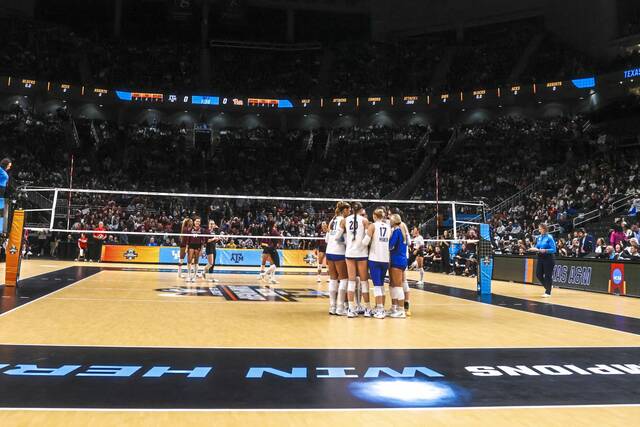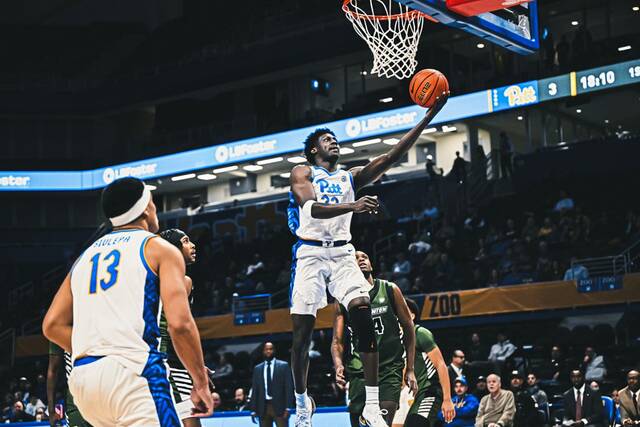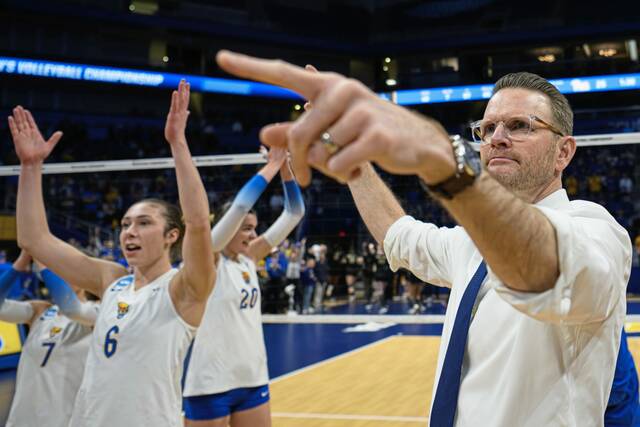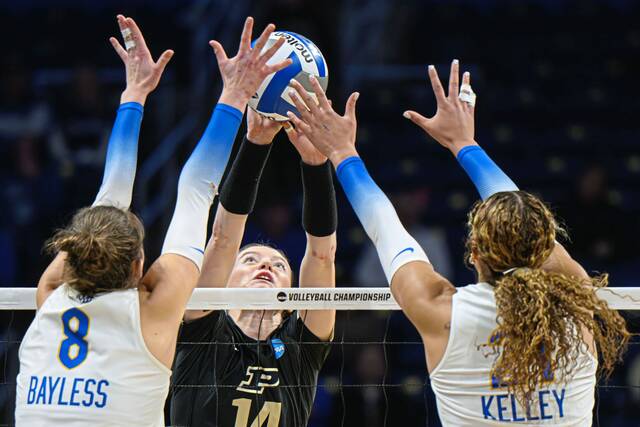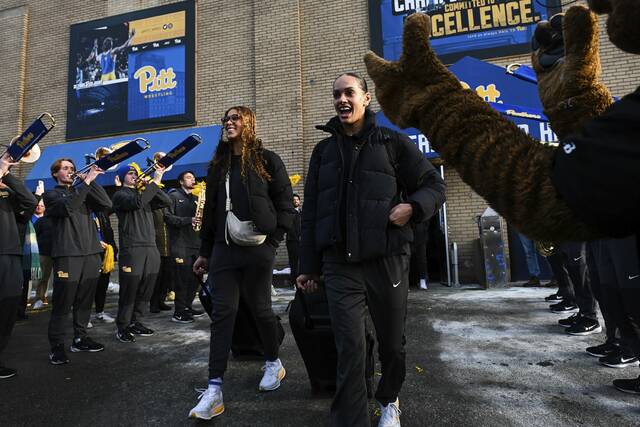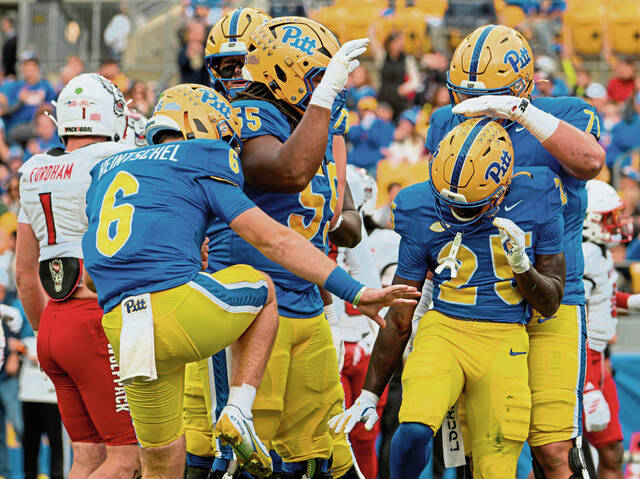Trailing Duke by a point with the first half clock winding down last Saturday at Acrisure Stadium, quarterback Kedon Slovis led the Pitt offense out of its huddle.
The heat was on because it was third down, and Pitt coach Pat Narduzzi didn’t want to settle for a field goal.
Immediately, Slovis noticed one Duke safety lining up deep. At the snap, Duke dropped two safeties deep, changing the look and triggering the exact response in the heads of Slovis and wide receiver Jared Wayne.
Sitting above the field in the coaches’ box, offensive coordinator Frank Cignetti Jr. saw the same defensive alignment.
“When it went to two high,” Cignetti said, “Jared and Kedon were on the same page, and Jared adjusted his route to take the open space.”
Result: A 15-yard touchdown pass and a halftime lead on the way to a 28-26 Pitt victory. Clearly, a field goal in that moment wouldn’t have been enough.
“There are things that happen on the field beyond coaching, and that was beyond coaching,” Cignetti said. “Jared and Kedon did an unbelievable job taking what the defense gave them.”
Those moments haven’t happened often this season, however. Only one ACC team, Virginia, has thrown fewer touchdown passes than Pitt’s nine. The Panthers average only 217.5 yards through the air, 12th in the conference.
But Cignetti won’t blame the situation on one player.
“Football is the ultimate team game,” he said. “When there’s a lack of execution, there are a lot of reasons why. You try to get 11 guys playing as one.
“Sometimes, it looks like the quarterback when, in reality, you come in here (and watch video) and it might be the wide receiver. It might be the protection. There are other reasons.”
Cignetti also referenced “the human element.”
“If a guy’s running a route and he’s a step off or maybe his eyes are a little late sometimes, what you try to do is minimize the margin of error.”
Cignetti, who brought with him 32 years of experience, said Pitt’s passing game is “making progress” as the Panthers prepare for the final regular-season game Saturday at Miami.
“Sometimes, there’s beautiful execution,” he said. “Then, there are plays we leave on the field. Second play (against Duke), Kedon just underthrows the ball. Wide receiver doesn’t look at the appropriate time (later in the game). We have a big-play opportunity and maybe the protection breaks down. It’s not always the offensive line. It could be the backs.
“Let’s say we leave 10 good pass opportunities on the field. We have to cut that at least in half or to two or three.”
Cignetti has been a play-caller at nine stops in his career: eight college jobs (twice at Pitt) and one with the St. Louis Rams.
When speaking to reporters Wednesday, Cignetti explained how a play-caller must anticipate the next call, even before the current play ends.
“Calling a play, you have to be thinking ahead, and you have to think fast. Because things do happen fast,” he said. “Somewhere during that play, you’re processing a few different things in your mind. Am I going to be second and short? Am I going to be second and medium? Are we going to have a first down? What hash are we going to be on? And what did we see on that last down that we can take advantage of?
“Experience helps, being around great coaches and coordinators.”
When he was asked to identify the best play-caller he’s been around, he didn’t hesitate.
“Mike McCarthy. Oh, my goodness. The guy sees the game. The guy understands the game,” he said of the Dallas Cowboys coach. “He understands how defenses fit gaps, how they react and how you have to go expose them.”
Cignetti and McCarthy, a Greenfield native, were graduate assistants at Pitt in 1989, and they later worked together with the New Orleans Saints and Green Bay Packers.
Then, in 2019, when Cignetti and McCarthy were between jobs, they spent the year analyzing the NFL, coming up with the McCarthy Project.
Joined by former Saints coach Jim Haslett, an IUP graduate like Cignetti, and Mohawk High School and ex-Pitt linebacker Scott McCurley, they prepared for a return to coaching “as if they’re the NFL’s 33rd coaching staff,” NFL.com reported.
They studied league trends and analytics and planned practice schedules and meetings. McCarthy went through boxes of information dating all the way back to his time at Pitt.
The next year, Cignetti became offensive coordinator at Boston College, McCarthy was named the Cowboys’ coach and McCurley joined him as linebackers coach.
That year away did nothing to diminish Cignetti’s love for football.
“It’s a chess match,” he said. “As coaches, we love game-planning, the X’s and O’s of the game.”



